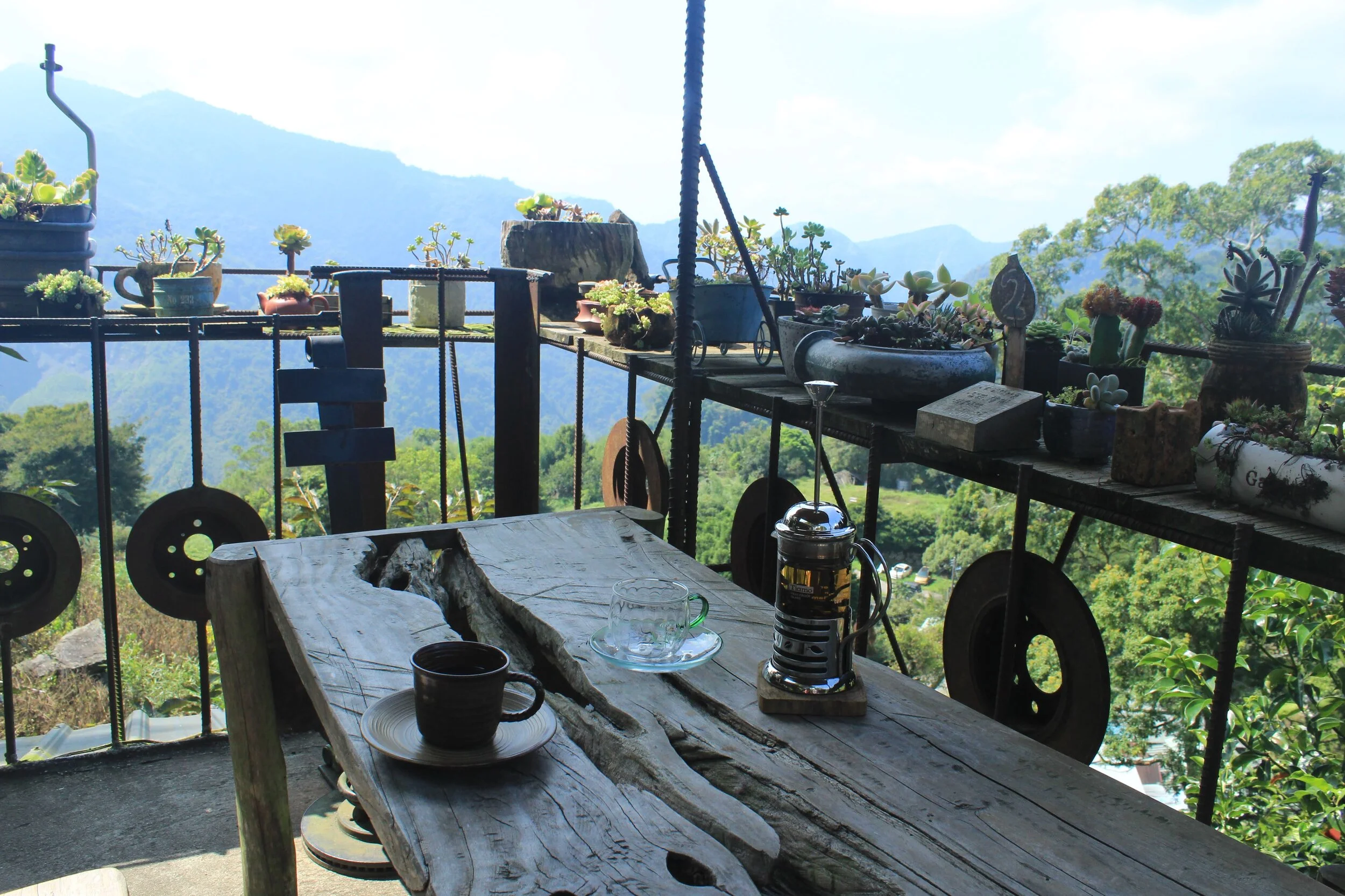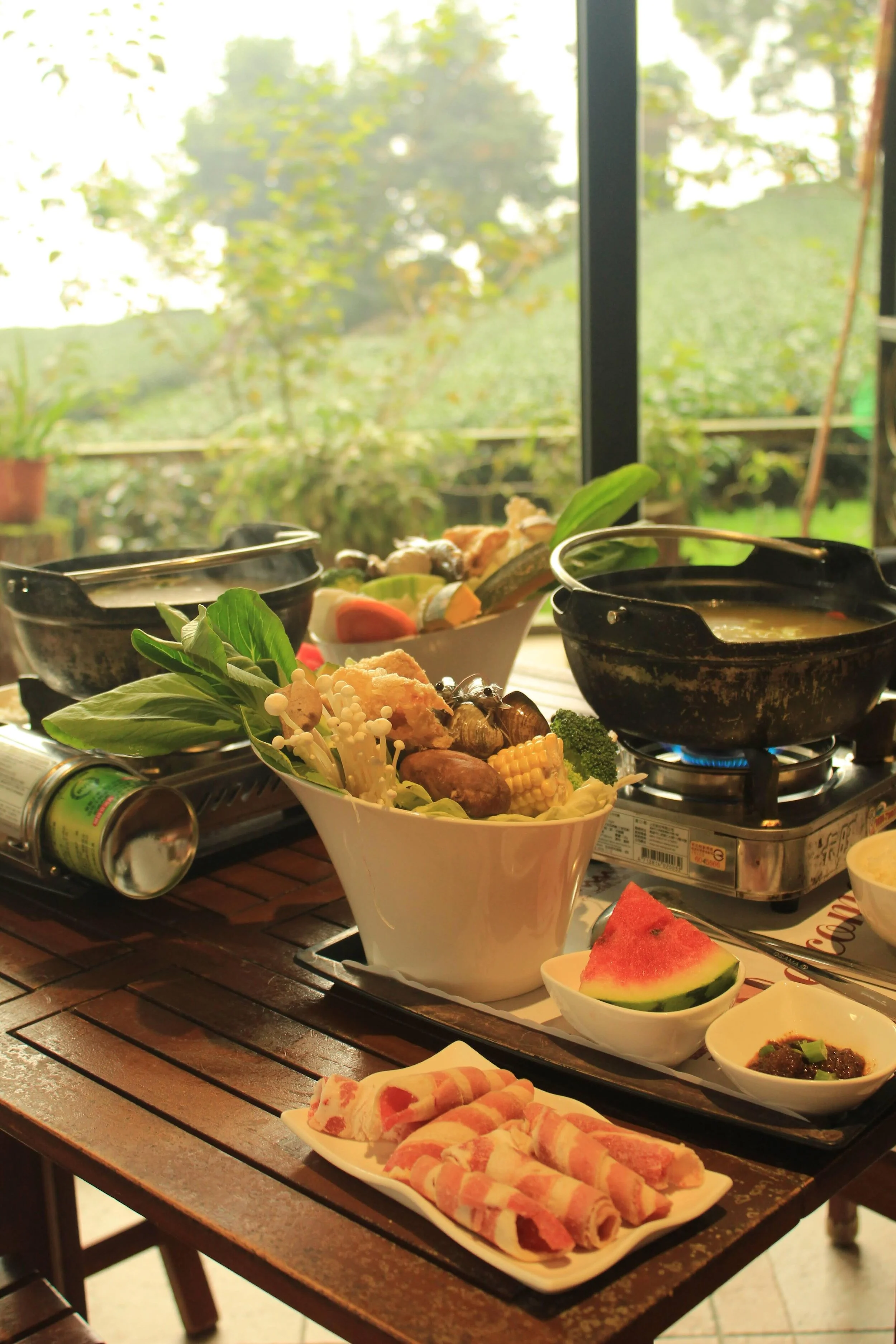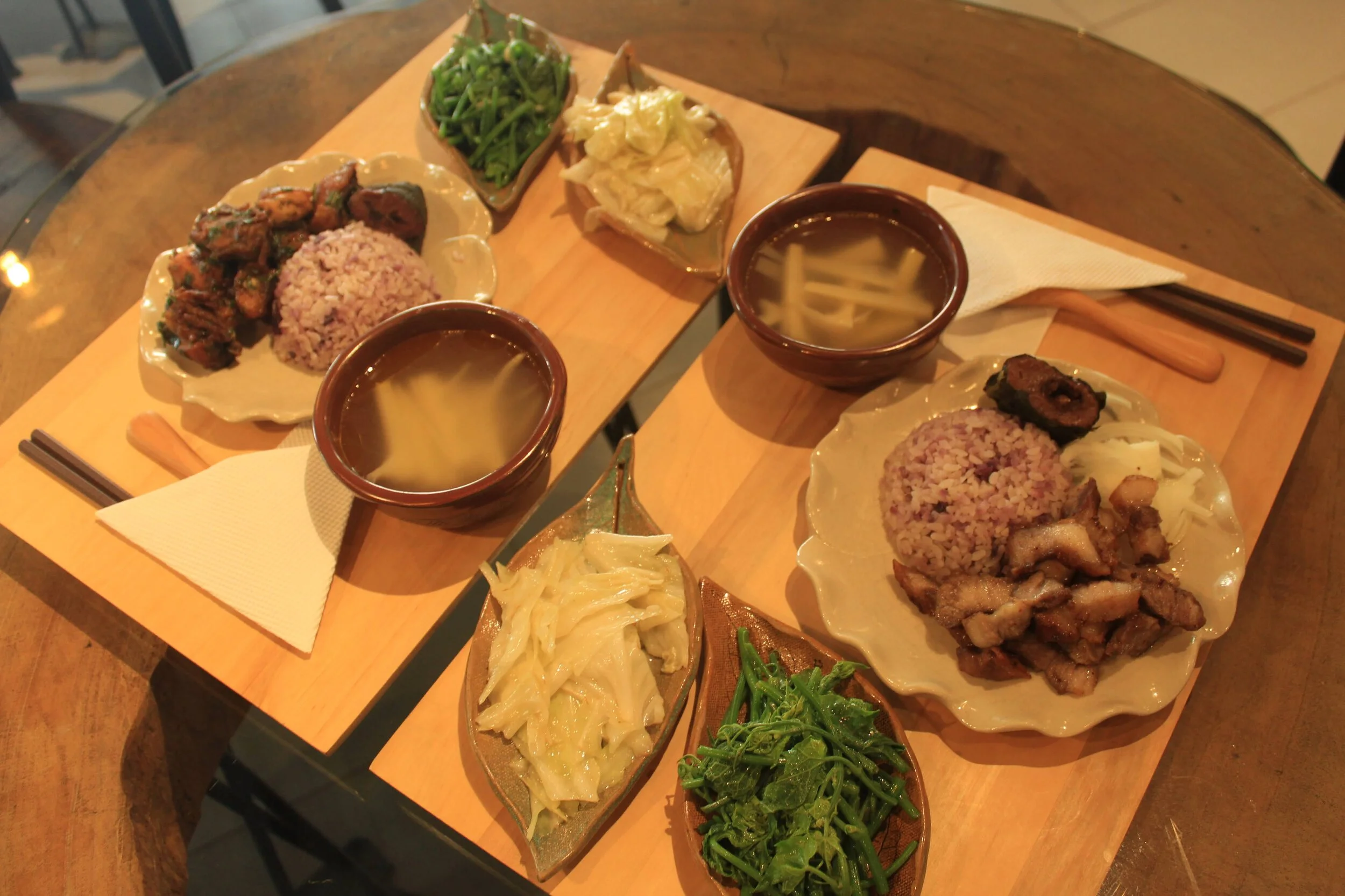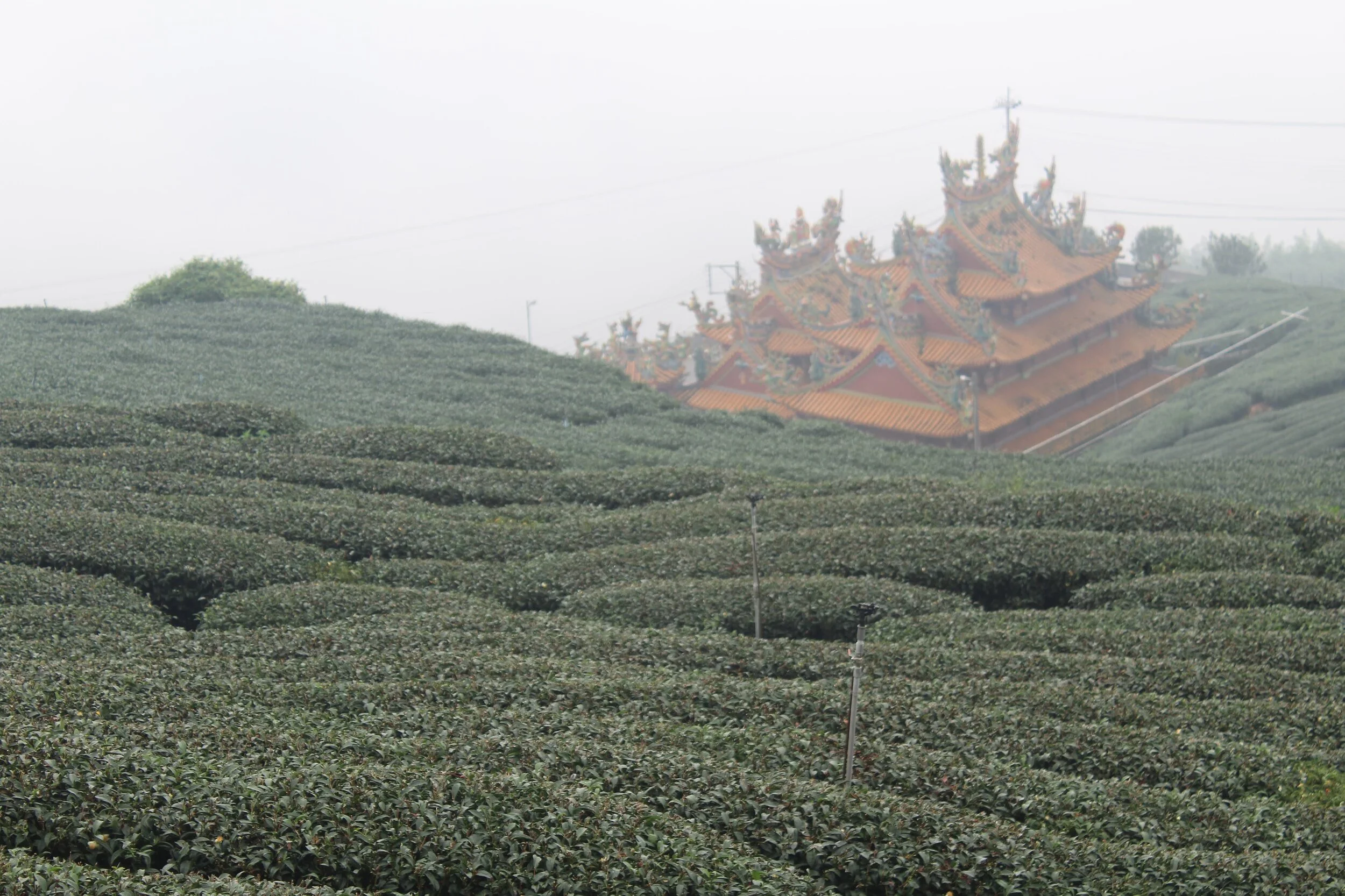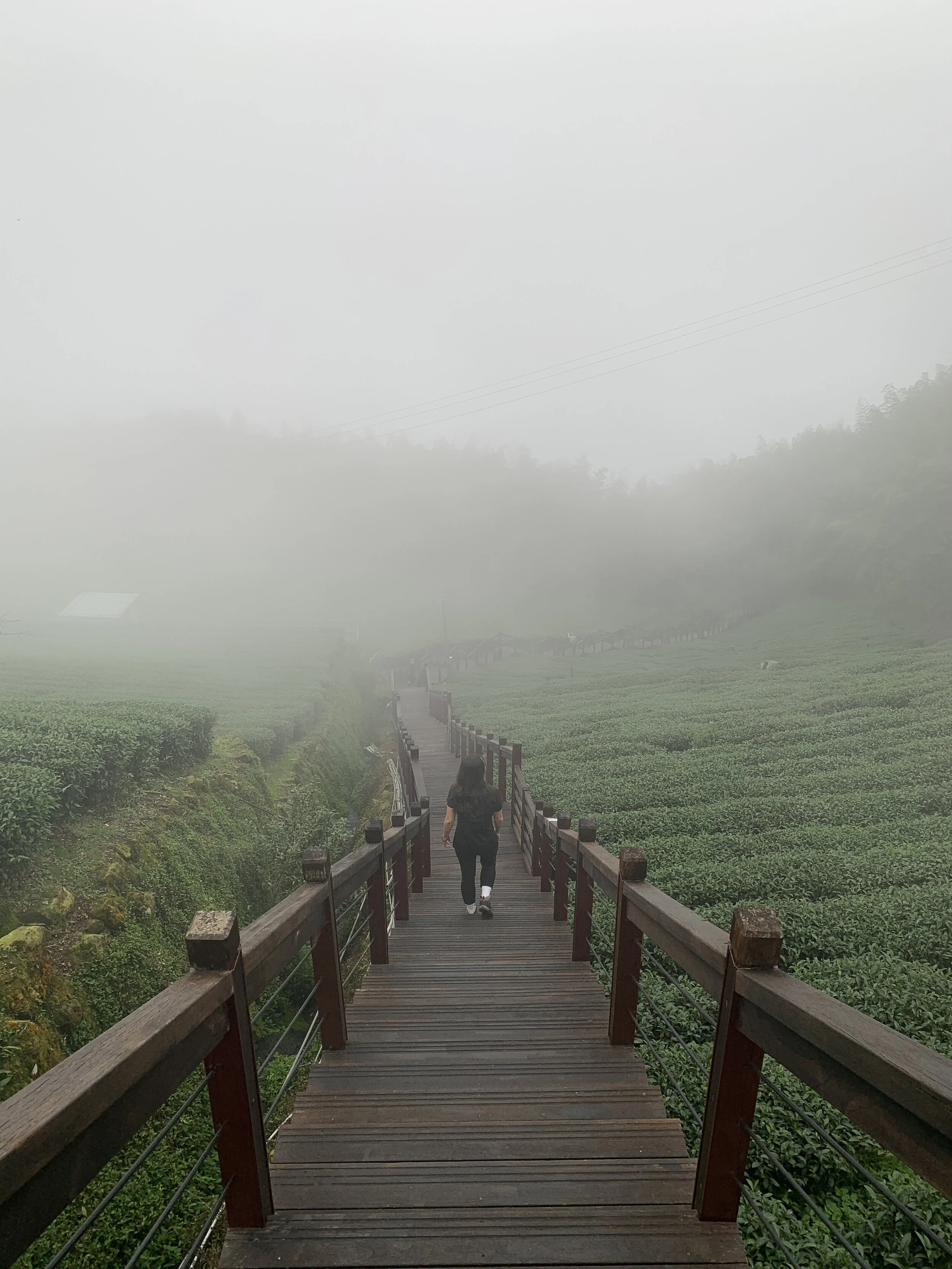A Guide to Alishan, Taiwan’s Tranquil Tea Heaven
Trail of Tea, Alishan
Alishan is one of my favorite places in Taiwan due to the insanely gorgeous fog and luscious green tea plantations. I came here to celebrate my birthday back in April of 2018 and accidentally left the most delicious Alishan Oolong High Mountain tea on the High Speed Rail (really upsetting) and I promised myself that I would one day return to pick up what I had lost. Shan or 山 in Mandarin means mountain, so technically the name is Ali Mountain. Alishan is famous for their High Mountain Oolong tea, so I’ll include a few tea-related recommendations below!
This time, we had a few days to explore Alishan and to experience a little bit of indigenous culture and to wander around the endless tea farms before we embarked on our Yushan hike. Here are a few of my favorite photos and places to visit!
Where to visit
Alishan National Forest Recreation Area - stay in the park and catch the famous sunrise in the early morning! The hiking trails are quite easy and take only a few hours to complete. Some of my favorite photos have been taken here as the fog rolls in through the trees. The park itself was free to enter due to our Alien Resident Certificate / National ID, I believe if you used it once already in the past you’d have to pay the next time to enter.
Mountain Ali Tea No. 35 - two locations: a small shop across from the visitor center selling tea and cold brew bottles as well as a separate restaurant that you can stay and watch the sunrise at - both inside of the park itself. Double check the hours online as the restaurant itself only opens from around 4 am to 12 pm or so (may change based on weather) The restaurant is walking access only or you can take the train inside the park to Zhushan Station and then walk.
Ajiang’s Home 23 Coffee 阿將的家23咖啡館 (pictures on the left) - a hidden gem! Really interesting, whimsical space right out of a movie. Ajiang personally created everything by hand and you can often see him creating something new as you walk through his home. Lots of wandering cats and a gorgeous view. Limited menu, no espresso, small bites but overall a really unique place.
Zou Coffee 鄒築園觀光休閒農莊 - I haven’t been here yet but heard it’s a great place for coffee made by a famous local roaster from the Tsou tribe.
YuYuPas Cultural Park - a wonderful introduction to tea growing by members of the local Tsou tribe. Visitor exhibits, dance performances, and tea tasting.
Trail of Tea - a small walking path that led to the beautiful wooden staircase in the first picture above, small bamboo forest slightly (ever so slightly) reminiscent of Arashiyama in Kyoto :)
Where to eat
FKUO Dim Sum 山芙蓉茶業 - delicious, locally grown food with an aboriginal flavor. I read that the restaurant is owned by a husband and wife team from different tribes - the husband is from the Tsou tribe and the wife is from the Paiwan tribe. We got garlic scallion chicken and roasted mountain pork! Each meal set is about 350 NT ($11.50 USD) and comes with Alishan oolong or black tea. Call to reserve - google says they open at 8:30AM but they actually don’t open for meal service until around 11:00 AM. (2nd photo below)
Hana Village Kitchen Hana廚房 - a Western restaurant opened by a South African woman who married an indigenous man from the Laiji tribe.
Fenqihu bento box - if you’re near the Fenqihu area, there is a famous bento box restaurant near the railroad tracks that a lot of tourists love to visit. They also have a dried tofu sandwich as a vegetarian option. We found a Fenqihu classic bento box rice roll at the local 7-11 which isn’t found at other locations elsewhere. Pretty cool! (5th photo below)
If you’re staying inside the park, the restaurants are all quite similar and mediocre. Most serve a small hot pot and side dishes, catered to large tour groups.
A few local specialties
Alishan High Mountain Oolong tea
Alishan coffee
Wild boar - wild boar is usually caught by local indigenous tribes, so you can find it on the menu at a lot of restaurants in this area
Millet wine, millet mochi - millet is a staple crop for indigenous tribes (4th photo above)
How to get around
The first time I visited, we relied solely on public transportation from Taipei which was doable but inconvenient. We were able to take the High Speed Rail from Taipei to Chiayi ($30 USD), then a bus to the Alishan Forest Park. You’d have to catch specific buses that only run at certain times, but it’s not impossible. A pretty big limitation though is that you can’t really explore anything beyond the park, which is disappointing. Back in 2018, I asked a park ranger to help us get from the park to the YuYuPas Cultural Park, which is where we explored the tea fields and learned about the Tsou tribe. It was incredible - we took a bus and a person from the cultural park picked us up from the bus stop and drove us to the park and back, all for free. Definitely a memorable experience, the epitome of true Taiwanese hospitality.
My recommendations: rent a car! Unfortunately, it’s about $60 USD per day which is pretty expensive. If you are able to split that with a group though, it’s not unreasonable for the amount of freedom you get to explore the local area on your own schedule.
Where to stay
I would recommend staying in a 民宿 on a local tea farm - waking up amongst the tea plantations is always so surreal to me. Most farms also provide a walk through introduction or tea picking experience, and sitting down to drink tea with the owners is such a wonderful treat. This time, we stayed at YunMinGi B&B which was close to the Trail of Tea and a clean, comfortable option. The hot pot photo above was taken there as we opted for the add-on dinner - there were no other restaurants in the area, so definitely go for this option if you’re staying here!
A few other options that I would love to check out:
Airbnb: 山居 - stunning but always booked!
Airbnb: Wooden Treehouse - Located in Meishan Township (right next to Alishan Township)
